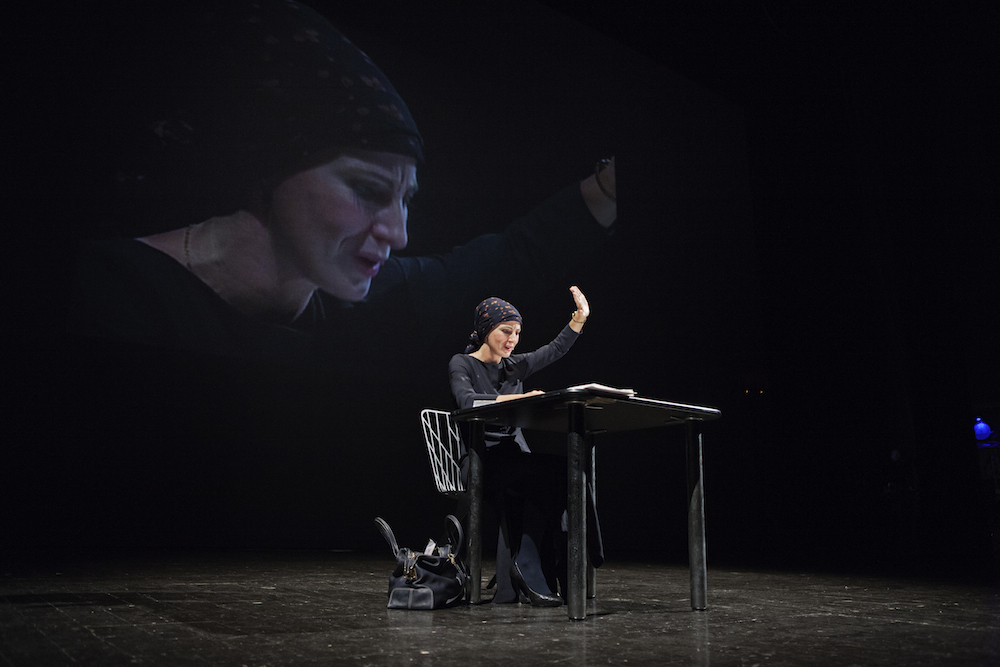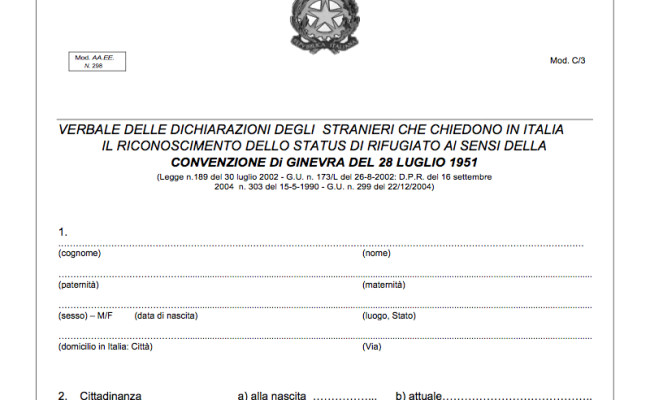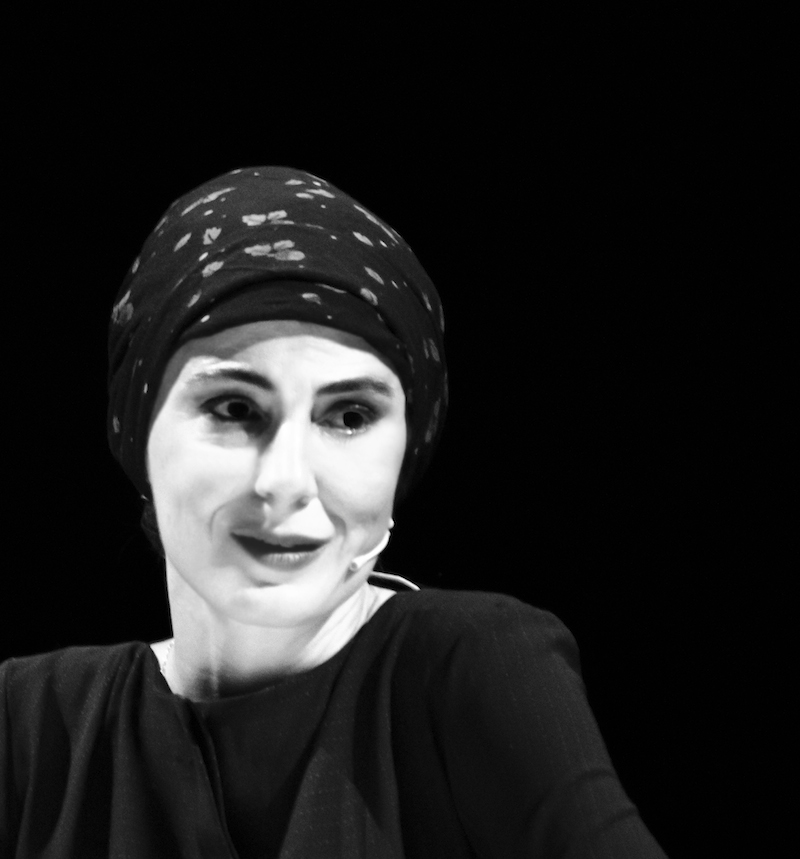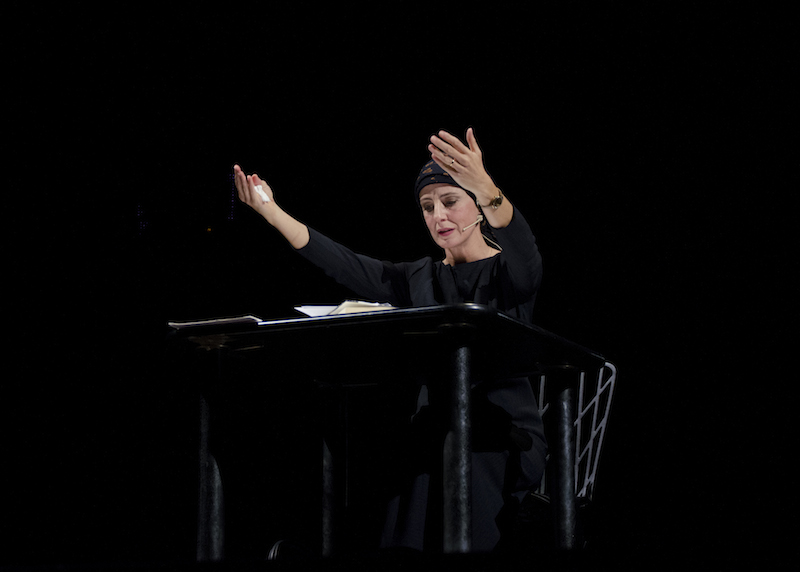Sono felice di potervi mostrare online alcuni brani del reading scenico "Non ho altro da aggiungere" che ha debuttato in anteprima il 3 Ottobre (commemorazione del naufragio di Lampedusa) al Festival di Internazionale a Ferrara. Con l'augurio di poterlo presto riproporre dal vivo...

Il reading scenico Non ho altro da aggiungere di Valentina Carnelutti, al Teatro Comunale. Lo spettacolo racconta la storia di Razan, fuggita dalla Siria in guerra, insieme ai suoi figli. (Francesco Alesi, Internazionale)
Razan è una donna, siriana, madre di due figli. E' fuggita dal suo paese con la sua famiglia, a causa della guerra, ed è approdata in Egitto, dove non ha trovato il futuro che voleva. Contro il parere di suo marito, che è rimasto al Cairo, ha affrontato da sola il viaggio in barca verso l'Italia, portando con sé i bambini. Un "viaggio dalla morte" alla fine del quale per loro c'è stata solo, di nuovo, incertezza. Ora è di fronte alla Commissione che esaminerà la sua richiesta d'asilo in Italia. E' lei stessa ad aver chiesto di essere ascoltata, vuole spiegare, raccontare, esporre le sue buone ragioni. Pensa di averne, pensa che la Commissione capirà il suo punto di vista, pensa di avere tante buone carte da giocare per farsi accettare in Italia. Ma la situazione in cui viene a trovarsi non è come se l'aspettava: gli ufficiali di polizia di storie come quella di Razan ne hanno già sentite a centinaia e non sembrano desiderosi di ascoltarne un'altra. Noi non li vediamo, non sentiamo cosa dicono, possiamo solo pensarli - grazie alle reazioni di Razan alle loro domande -mentre sprofondano stanchi e annoiati nelle loro sedie, in attesa di staccare dal turno di lavoro.
Qui è possibile scaricare il Modello_C3 per la Richiesta di Asilo.
Who is the person who escapes Syria today? Who is it that seeks for political asylum? What is her urgency? What does she leave?
And us? In which way can we make space for her? Are we at least able to receive her story?
On stage a woman, as the women who will be seated among the audience. She doesn’t remind a terrorist, nor a saint, she doesn’t wear a veil, she is not dirty, her apprehension makes her likable straight away. She is late, she apologizes, she introduces herself. Is it her turn? How long is this supposed to last? Must she speak in here?
There is a microphone on the table, besides a bunch of paper and folders.
The woman recognizes herself on the screen reproducing her face in real time.
The audience catches every thrill. Tiredness for now, fear, but also gratitude of being alive and being able to tell. The spectators themselves become the members of a hypothetical commission who will have faculty of deliberating. Welcomed or rejected.
It is by answering the questionnaire for the asylum request that Nisreen begins tracing the story of her travel, and of her landfall. It is in the folds of her answers that fragments of a country put down to it’s knees by war, of the complexity of the rules to be saved, of what it is to be a mother of two children and yearn for their good at the cost of feeling them soaked in salt and frozen in the dark of the open sea, can be retraced. It is in the attempt of concealing worry for her husband whom she hasn’t had news from in weeks, that the nature of a faith is perceived, and her falling apart reveals her exhaustion, and the fear of never seeing him again.
“We had postponed all our projects until the arrival because... maybe you die and don’t arrive.” But she eventually reached Italy and for the Dublin regulation it is here that she must ask for asylum. Graceful and lost, Nisreen is one of a thousand.
I wish that by the end of this monologue every spectator could intimately ask himself whether he has place or not to recognize a sister to support in this innocent person, beyond her qualities, simply because she is born and alive and here, now.
I believe direct and foreground narration reaches heart and soul in a more effective way than an interview does, which is always mediated by it’s container (a TV screen, a computer, a format).
I believe by putting the body in a narration, an implicit suggestion may be made for who listens to put his own. This is why after having followed Nisreen’s vicissitude thanks to journalist Stefano Liberti, I decided to reinvent her story in order for it to become both witness and open question. This is why I asked Islam researcher and writer Lorenzo Declich to build this monologue - audition with me. This is why I proposed theatre director Stefano Scherini to follow me in the staging and this is why I decided to interpret Nisreen myself. She is a woman like me, the world could rotate a few degrees and I would be in her place.
The debut at the Internazionale festival on October 3, exactly two years from the tragic shipwreck in Lampedusa wants to be just the first lap of a journey that I imagine shall cross over our borders, in the ideal openness that the text itself suggests (my familiarity with foreign languages allows me to interpret it indifferently in English French and Spanish, besides Italian).
The piece’s format doesn’t exclude the possibility to be proposed to more classical theatres as well as alternative locations, and it is foreseen that it can be performed outdoors and indoors. The performance
lasts a little less than an hour and it may be replied in different circumstances. Screen camera and microphone are the only essential instruments for the narration to be unfolded.
Nisreen repeats this sentence if it is good for me, make it easy, if it is bad make it difficult. I adhere to it by thanking Stefano Liberti, Lorenzo Declich and Stefano Scherini whom immediately made the construction of this project easy.



